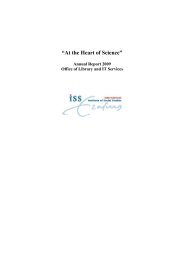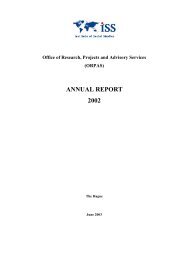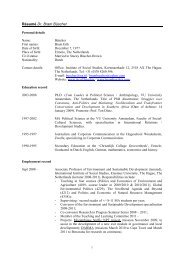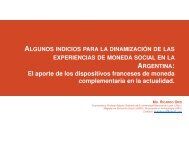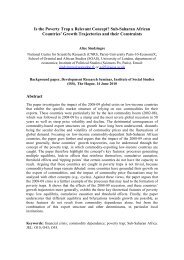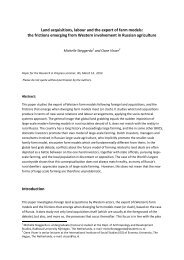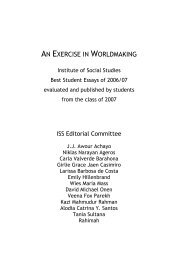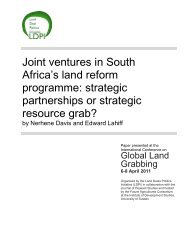AN EXERCISE IN WORLDMAKING 2009 - ISS
AN EXERCISE IN WORLDMAKING 2009 - ISS
AN EXERCISE IN WORLDMAKING 2009 - ISS
Create successful ePaper yourself
Turn your PDF publications into a flip-book with our unique Google optimized e-Paper software.
168 UMME BUSRA FATEHA SULT<strong>AN</strong>A<br />
“Western Other” by the “Eastern Self” which is coined as ‘reverse Orientalism’<br />
by Abu-Lughod (1991: 470). She explains the present day anti-<br />
West struggles as an attempt to reverse the power relationship and a retort<br />
against Western devaluation of Eastern knowledge. As she exemplifies,<br />
the new Islamist appeal to a greater faith in God, compared to the<br />
immorality and corruption of the West is based on essentialist terms of<br />
Orientalist constructions, yet has been applied in a reverse way (ibid.).<br />
What is also viewed by Scott (2007: 19) as a ‘clash of civilization’, clash<br />
between “Islam” and the “West”, as she links it with the dangers of dichotomization:<br />
creating reverse categories “civilized” versus “backward”<br />
or “morally upright” versus “ideologically compromised”, in fact we refuse<br />
to accept and respect differences and diversities and turn each other<br />
into enemy. Consequently, it secures “us” in a rigid and dangerously defensive<br />
posture in relation to “them”.<br />
Although such identical explanations of ‘reverse Orientalism’ and<br />
‘clash of civilizations’ were explored as a case of “Middle East” versus<br />
“West”; they are similarly applicable to Bangladesh in understanding the<br />
extremist positions of feminists versus Islamic fundamentalists regarding<br />
the veil. Whereas feminists are prejudiced by the Orientalist discourse of<br />
the veil, the Islamists use such essentialist construction in a reverse way,<br />
and accordingly turn veil into the ultimate symbol of women’s religiosity,<br />
piety and modesty. From such a rigid position they do not consider the<br />
specific context and particularities of the veil debate, rather judge it as a<br />
Western attack against the Muslim world viewed by Scott (2007) as a<br />
clash between Islam and the West. Hence, in a reverse Orientalistic way,<br />
all public visibility of women and all progressive activities of women are<br />
deemed to be the simulation of “Western modernity”, labeled as anti Islamic,<br />
and the threat in support of compulsory adoption of veil or the<br />
pro-choice of veiling in these groups works as a defensive mechanism<br />
for their ‘reverse Orientalism’ project.<br />
CONCLUSION<br />
In this essay I attempt to unpack the politics of veil in Bangladesh. I encapsulate<br />
the antagonistic positions of feminists and fundamentalist<br />
Islamists concerning burqa and bring theoretical insights to delve the<br />
politics of both groups behind their pro and anti choice of burqa. From<br />
various theoretical perspectives I reveal that the feminists who have a<br />
very negative attitude towards veiled women are largely remade by the



